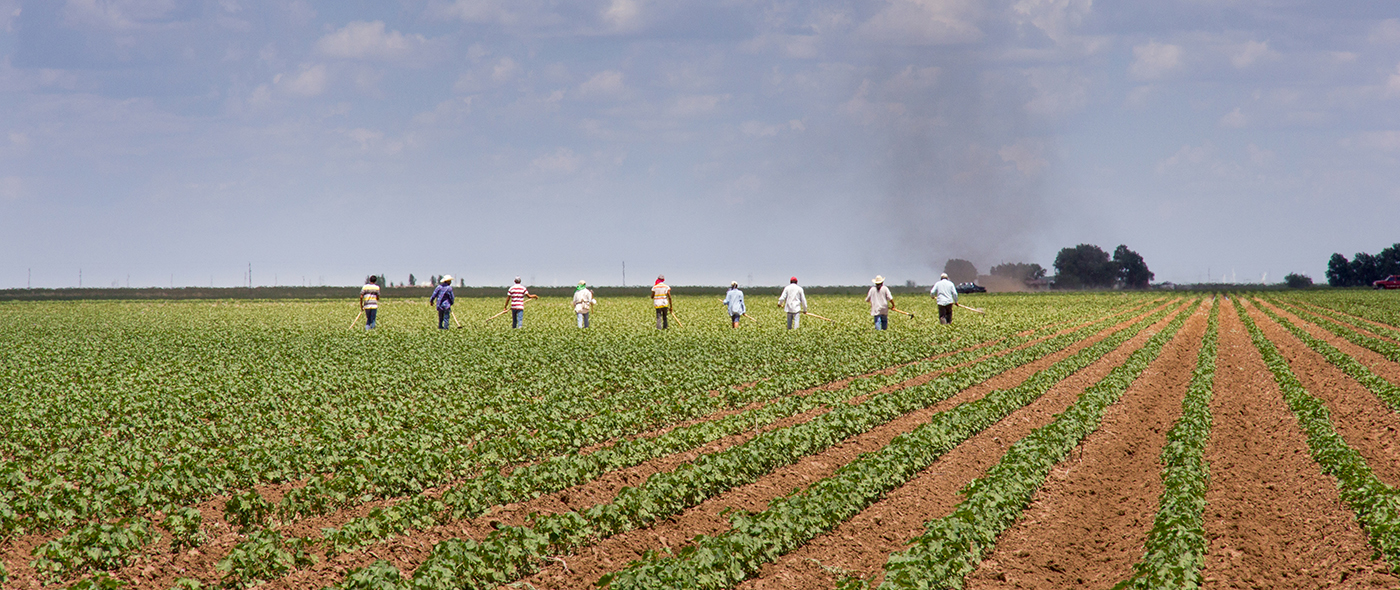
The Oregon Legislative 2022 session has come to an end with the successful passage of the high-profile Farmworker Overtime Bill, HB 4002, now awaiting Governor Brown’s signature. More than 900 testimonies were submitted to the House Committee of Business and Labor and another 520 testimonies were submitted to the Joint Committee on Farmworker over time, making sure that the public's voice was heard. The passage of this bill is a significant step forward in addressing structural racial barriers and inequities. The Farmworker Overtime Bill not only ensures that farmworkers are paid at time and a half their regular hourly rate for work done above the 40 hour week threshold, but from a public health point of view, it also has potentially protective health measures which may alleviate some of the stressors farmworkers are experiencing.

The 1938 Fair Labor Standard Act (FLSA) was signed by President Franklin D. Roosevelt.
It is important to note that the reason Congress enacted the Fair Labor Standard Act (FLSA) in 1938 was a result of “…labor conditions detrimental to the maintenance of the minimum standard of living necessary for health, efficiency, and general well-being of workers…” [1], and to ameliorate these working conditions a 40-hour weekly cap was set, making employers less frivolous with their demand on employees' time. However, this eighty year-old law has failed to guarantee overtime pay for farmworkers.
Unfortunatley, a long history of intitutionalized racism has excluded Black Farmworkers and Migrant farmworkers from the FLSA, meaning they have not received equal rights under this act. This legacy continues to harm all farmworkers. Agricultural work is labor-intensive. Farmworkers are subjected to multiple health and safety hazards in their work environment, including physical injuries, exposure to toxic pesticides, and extreme weather conditions that affect their health.
According to a report done by Oregon Health and Science University (OHSU) on farmworkers, working overtime routinely increases the risk of work-related injuries due to fatigue [2]. The Census of Fatal Occupational Injuries (CFOI) reported that the share of Hispanic or Latino workers fatally injured on the job increased from 20.4% in 2019 to 22.5 % in 2020 (which in numbers are 1,072 fatalities). 16% of these fatalities were related to exposure to harmful environments or substances and another 25% were attributed to falls and slips at the work site [3]. Moreover, the fatality rate for Hispanic or Latino workers was 4.5 deaths per 100,000 full time equivalent (FTE) workers in 2020 while the overall fatal work injury rate for 2020 was 3.4 fatalities per 100,000 FTE [4]. The difference is fatality rates indicate that Hispanic or Latino workers are more prone to fatal injuries due to the requirements of their jobs.

The OHSU report has also established a link between workers who routinely work overtime and the onset/progression of chronic health conditions of heart disease and diabetes. In addition, workers are at higher risk of developing heat-related illnesses such as heat exhaustion or heat stroke during extreme heat events [5]. Farmworkers' well-being and quality of life are also affected by long workdays. Frequently working overtime provides less time for family life and causes financial and logistical strain trying to maintain a functional household and childcare. [2]

These health stressors, which stem from long working hours, may be alleviated with the recently passed rule. By being more mindful of regular work hours and compensating workers for overtime labor, we hope to see multiple changes, including a decline in work-related injuries due to fatigue and a higher standard of living leading to reduced financial burdens on households. We are confident that these improvements will contribute to Oregon's economy and thereby increase the overall well-being of workers, their families and their communities.
By Galia Peleg,
Master in Public Health Fellow, Oregon Health and Science University
References
1.) 29 U.S.C. § 202(a) https://www.law.cornell.edu/uscode/text/29/202
2.) Oregon Health and Science University. (2021). Mandated, but not compensated: Exploring the multifaceted impacts of overtime on farm workers’ health, safety, and well-being. https://img1.wsimg.com/blobby/go/c8357af7-9c3e-4b52-9725-4de56f1d3cea/PCUN_White%20Paper-Overtime%20Pay_FINAL.pdf
3.) TABLE A-7. Fatal occupational injuries by worker characteristics and event or exposure, all united states, 2020. (2021, December 16). Bureau of Labor Statistics. https://www.bls.gov/iif/oshwc/cfoi/cftb0342.htm
4.) Bureau of Labor and Statistics. (2021, December 16). NATIONAL CENSUS OF FATAL OCCUPATIONAL INJURIES IN 2020 [Press release]. https://www.bls.gov/news.release/pdf/cfoi.pdf
5.) Castillo, F., Mora, A. M., Kayser, G. L., Vanos, J., Hyland, C., Yang, A. R., & Eskenazi, B. (2021). Environmental health threats to latino migrant farmworkers. Annual Review of Public Health, 42(1), 257–276. https://doi.org/10.1146/annurev-publhealth-012420-105014






